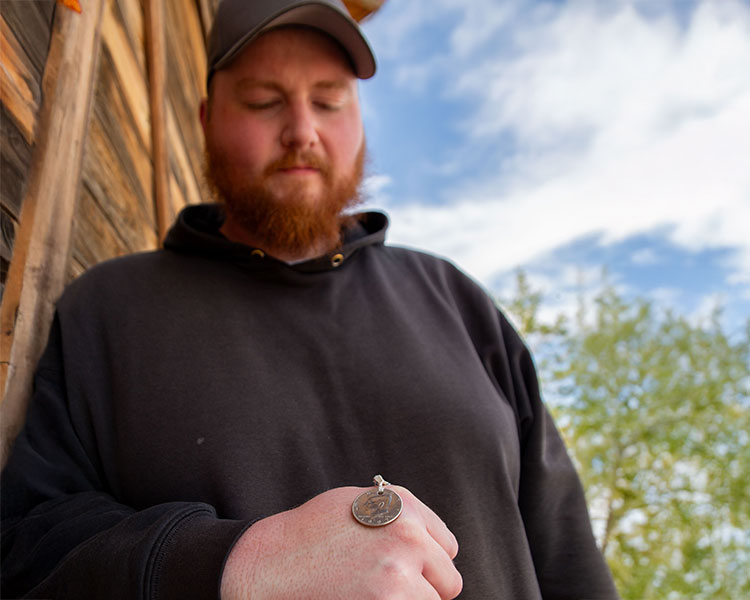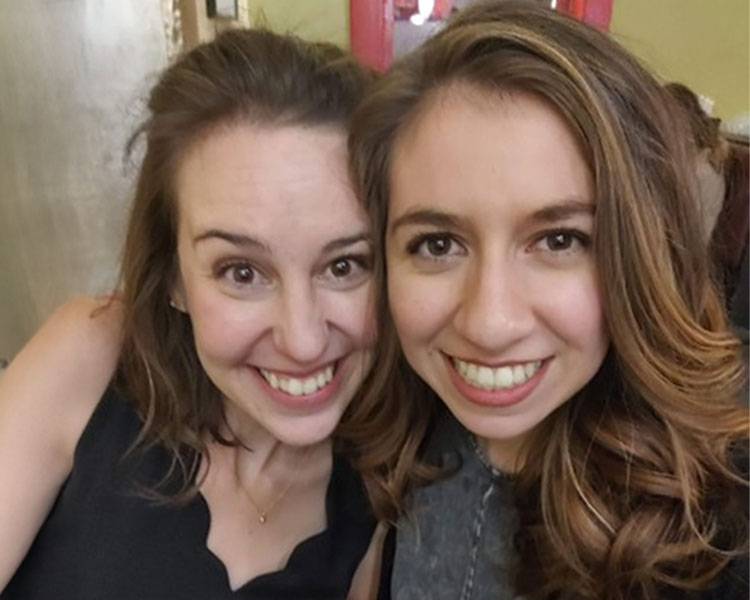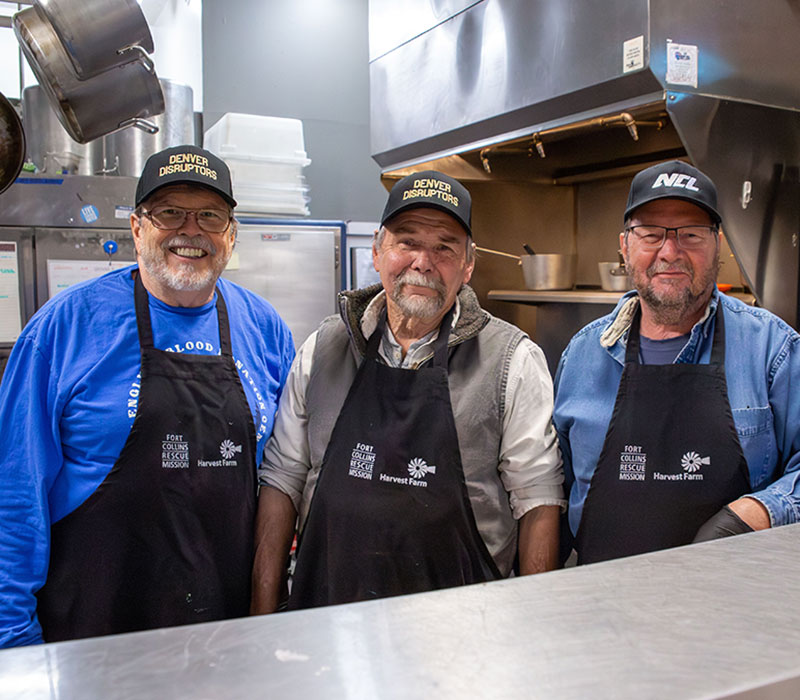Caleb was at his lowest and darkest moment. For years he struggled with addiction, prioritizing the high he got over relationships with those closest to him. Sinking into depression, he no longer valued himself or the life he was living.
That’s when he made the decision to end his own life. It was a decision that not only didn’t turn out the way he planned, but began his new life in Christ.
Growing up in a Christian family, Caleb went through the motions of going to church, but never experienced the love and relationship that comes with following Jesus. When his suicide attempt left him with a brain injury, stroke-like symptoms and no control of the right side of his body, Caleb spent several months in the hospital. That’s when he found himself reevaluating everything in his life.
“God being full of love and kindness and compassion spared my life,” he said. “The Lord really knew what it was going to take for me to get to a place where He could talk to me and show me things. Once I gave up control to God, He started opening up doors for me.”
When he got out of the hospital, Caleb knew he needed long-term support. That’s when he joined the New Life Program at Harvest Farm. There, he received the help and tools he needed to begin his new life.
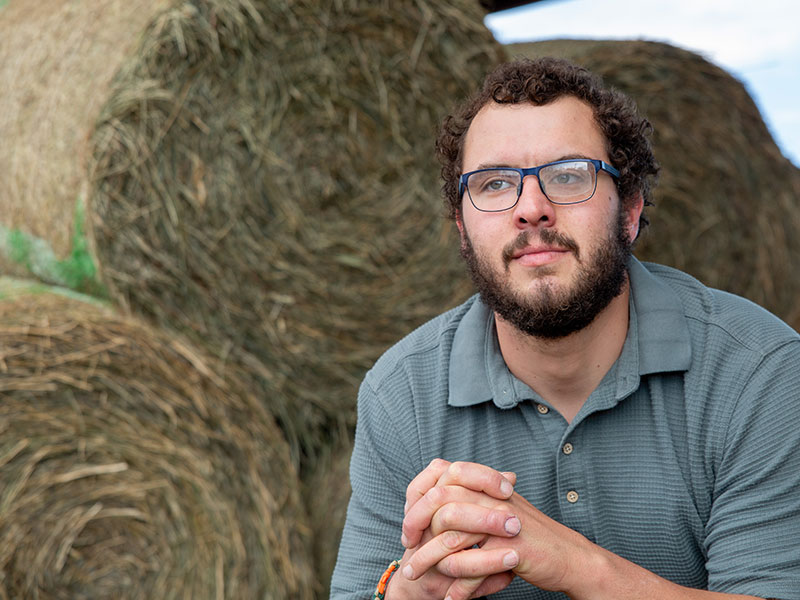
From his counselor, Christopher Kaplan, he learned about his emotions and how to process them. From his work readiness supervisors, Livestock Coordinator Darrol Telck and Agriculture Supervisor Scott Newbold, Caleb learned about how to communicate with others and the benefits of interacting with animals and nature.

“The work therapy here is very much work therapy,” he said. “Just being outside is a huge thing for me. The animals aren’t biased with people and learning the responsibility of these things, it’s just getting your eyes off yourself. I needed that quietness to be able to hear God and to be able to set the right course for my life.”
As Caleb reflects back on the person he was before, he is grateful for the path God led him on, for it’s the path that led him to Christ and led him to enjoy waking up another day.
“With plants sometimes it’s hard to know the difference between what’s supposed to be good and what’s not. So, like a lot of times in our lives, you might have to ask somebody for help. If we pick the weeds when they’re at a small size, it’s not a huge problem, but it turns into a big problem when you let that weed grow for a long time. By the time you rip out the one bad weed, you’re pulling a lot of good stuff with it.”
Darrol
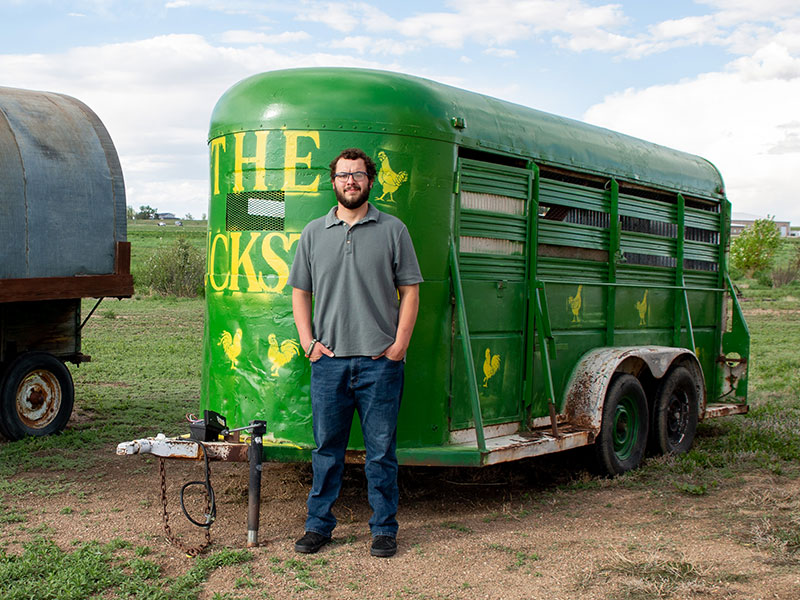
“The life that He’s given me is beyond anything I could have imagined before,” he said. “Not just physically, but my mental and spiritual state. What He’s building up inside me is something I wouldn’t exchange for anything.”
“Thank you from the bottom of my heart. To realize that people need help and allowing God’s love to flow through you, I’m forever grateful.”
Caleb
Understanding Trauma
Most of our guests and participants have experienced the effects of traumatic events in their lives.
Events
- Homelessness
- Addiction
- Domestic Violence/Sexual Abuse
- Racial or Political Discrimination
- Severe Illness/COVID
- Job Loss/Financial Instability
- Accidents and Natural Disasters
- Relational Issues (like betrayal, infidelity or neglect)
- Grief and Loss
Responses
- Anxiety
- Depression
- Anger
- Avoidance
- Irritation
- Uncertainty
- Overwhelm
- Worry
- Disconnection
- Lack of Motivation
What Is Trauma-Informed Care?
Trauma-informed care involves understanding the effects of traumatic events, addressing them without re-traumatizing and helping survivors rebuild control, empowerment and resilience.
Our staff work with trauma-informed practices by:
Discerning our guests’ individual needs as soon as they come through our doors
Creating a comfortable and safe environment within our facilities
Asking questions that lead to self-sufficiency and independent decision-making
Using intentional and non-assuming language
Rural Restoration
Taking care of the Farm’s animals and agriculture comes with meaningful life lessons for our New Life Program participants. In Christopher’s words, “. . . at the same time, you’re taking care of yourself.” For Caleb, working in the greenhouse taught him how to properly weed things out of a garden, and in his personal life.
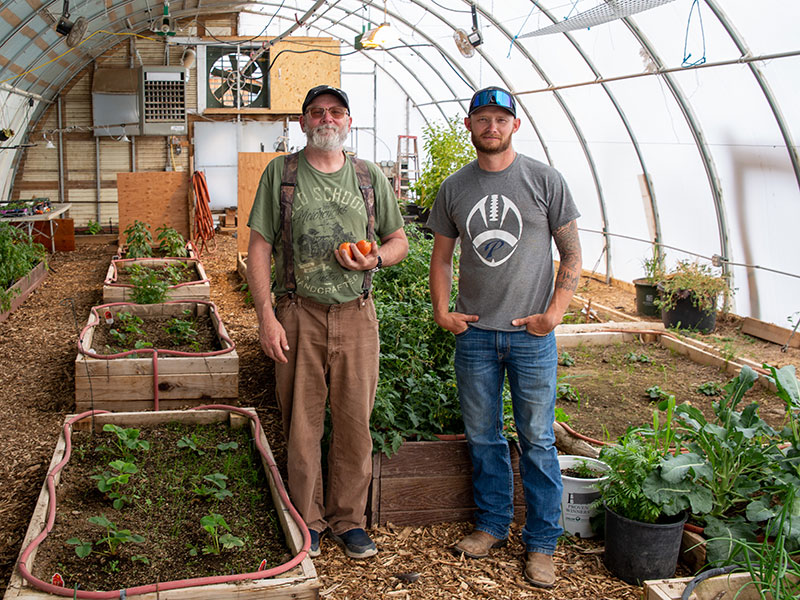
Help Today
Give today to help men like Caleb heal from their hardships.




